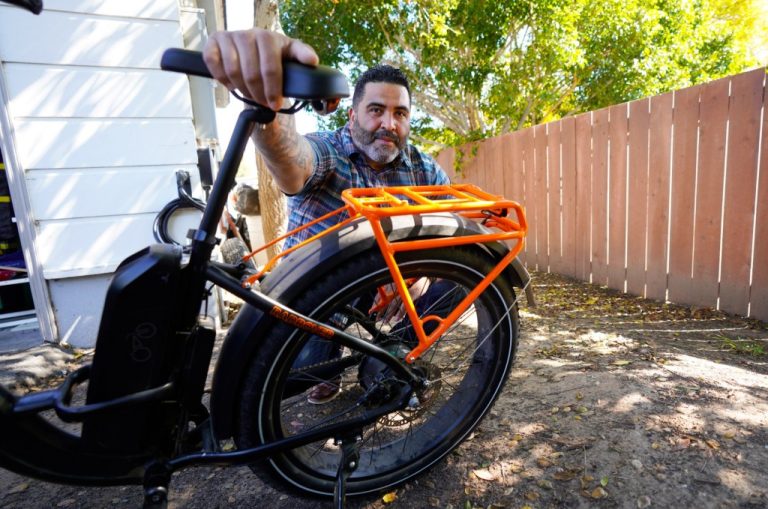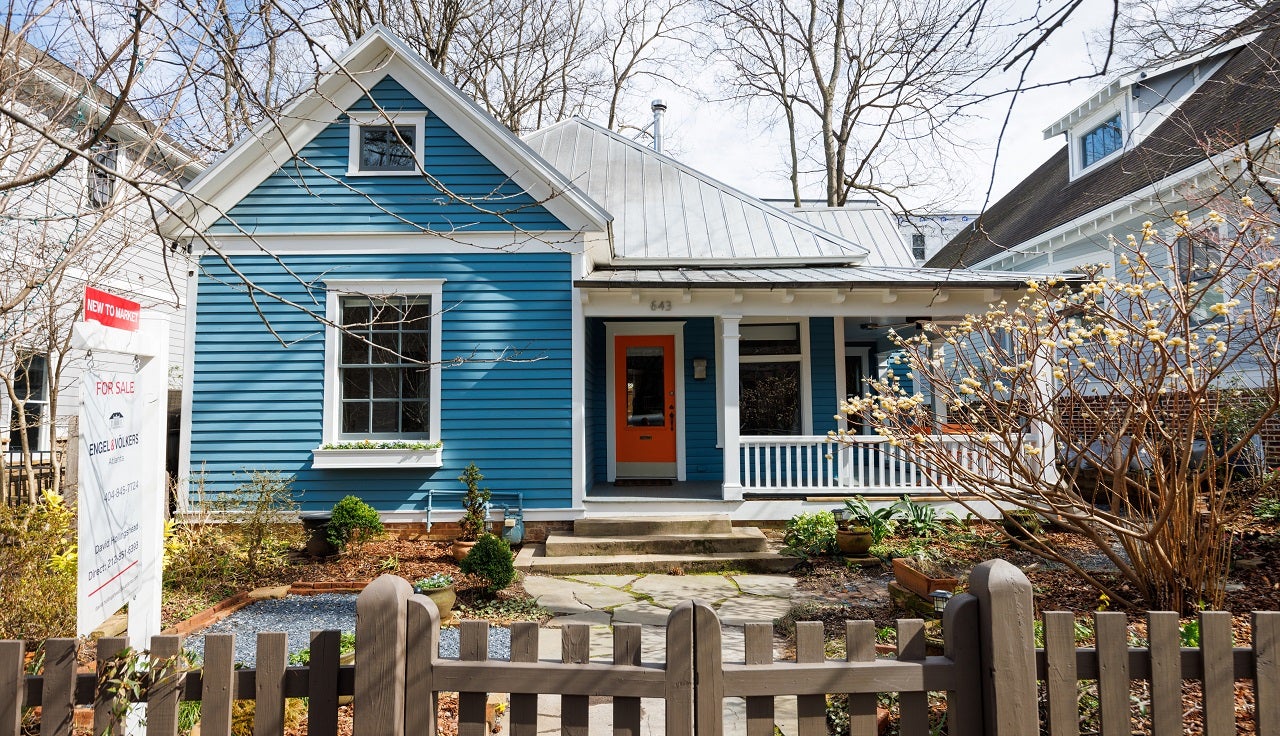
Mendon Capital Advisors President and CIO Anton Schutz says once the Fed starts cutting rates, it will have to ‘keep cutting.’
First-time homebuyers have to earn nearly twice as much money to purchase a starter home compared with pre-COVID-19 pandemic times.
As of February, first time buyers needed to earn $75,849 annually to afford the typical U.S. starter home, which is nearly $6,000 more than they did a year ago, due to elevated mortgage rates and high home prices, according to recent data from Redfin.
According to data from the technology-powered real estate brokerage, the monthly housing payment for a starter home jumped 8.2% in February from a year earlier, reaching $1,896.
It’s a stark difference compared with February 2020 – before the pandemic – when Americans needed to earn $40,465 annually to afford a starter home. At the time, the median sale price was $169,000 and the average mortgage rate was about 3.5%, according to Redfin data.
Today, mortgage rates are hovering just under 7%.
TO RENT OR TO BUY? WHAT TO CONSIDER WHEN DECIDING BETWEEN A HOUSE OR APARTMENT
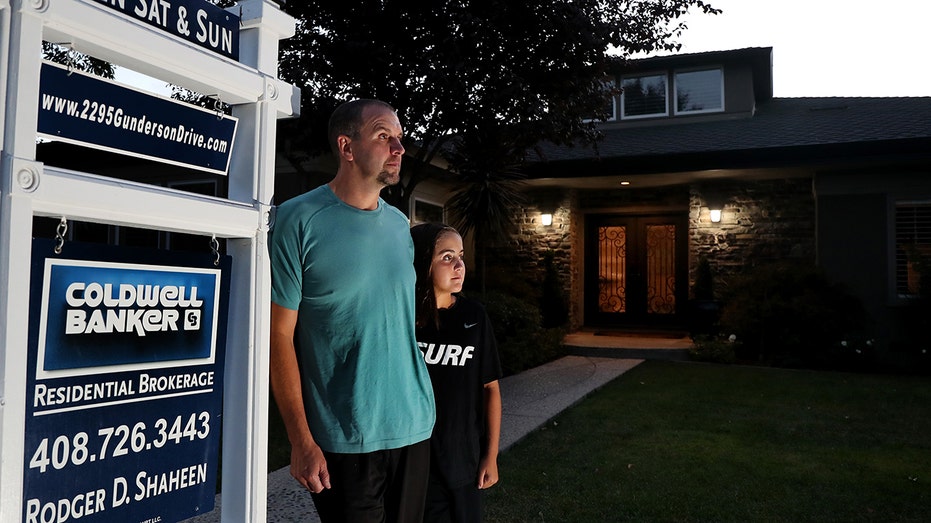
It’s a stark difference, compared with February 2020 – before the pandemic – when Americans needed to earn $40,465 annually to afford a starter home. (Ray Chavez/Digital First Media/The Mercury News via Getty Images / Getty Images)
While incomes are on the rise, they are not keeping pace with the rate of starter-home costs.
As of February, a typical American household earned an estimated $84,072, up 5.5% from a year earlier. In comparison, the income needed to purchase a starter home jumped 8.2% from a year earlier.
Today, the median income is 11% higher than what’s needed to buy a starter home. However, a year ago, it was 14% higher, and during pre-pandemic times, it was 63% higher, according to Redfin.
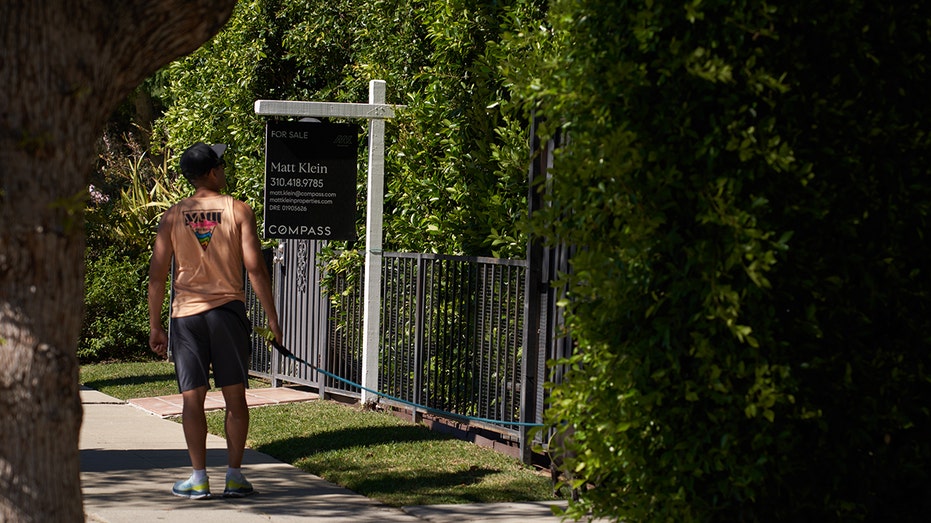
A man walks his dog past a “for sale” sign displayed outside a single-family home on Sept. 22, 2022, in Los Angeles, California. (Allison Dinner/Getty Images / Getty Images)
In a separate report, the brokerage noted that a buyer in the overall market must earn about $114,000 to afford the typical U.S. home. That is roughly $30,000 more than the median U.S. household income.
Redfin senior economist Elijah de la Campa said that the pandemic, which caused a “housing-market boom,” ended up changing the definition of a starter home.
‘SHARK TANK’ STAR BARBARA CORCORAN REVEALS WHEN HOUSING PRICES ‘WILL GO THROUGH THE ROOF’
“A decade ago, many people thought of a starter home as a small three-bedroom single-family house. Now that type of home could cost seven figures, especially in expensive parts of the country,” de la Campa said.
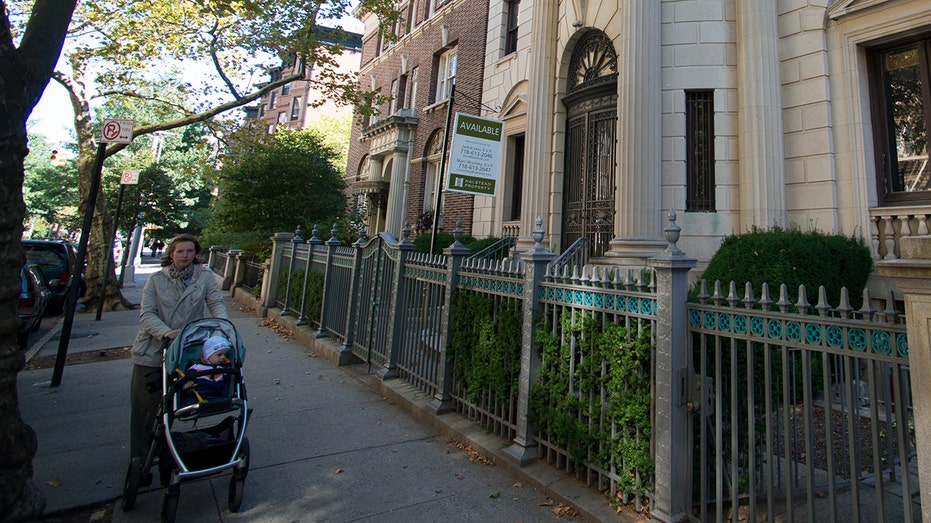
Today, the median income is 11% higher than what’s needed to buy a starter home. However, a year ago, it was 14% higher, and during pre-pandemic times, it was 63% higher, according to Redfin. (Craig Warga/Bloomberg via Getty Images / Getty Images)
Not only are the most affordable homes much smaller, but they “often require a lot of work to make them habitable – which makes them cost even more,” he added.
GET FOX BUSINESS ON THE GO BY CLICKING HERE
With rising prices and borrowing costs, “today’s most affordable homes are still hard for the average American to afford, let alone the average first-time buyer who tends to put less money down in exchange for higher monthly payments,” de la Campa said.







